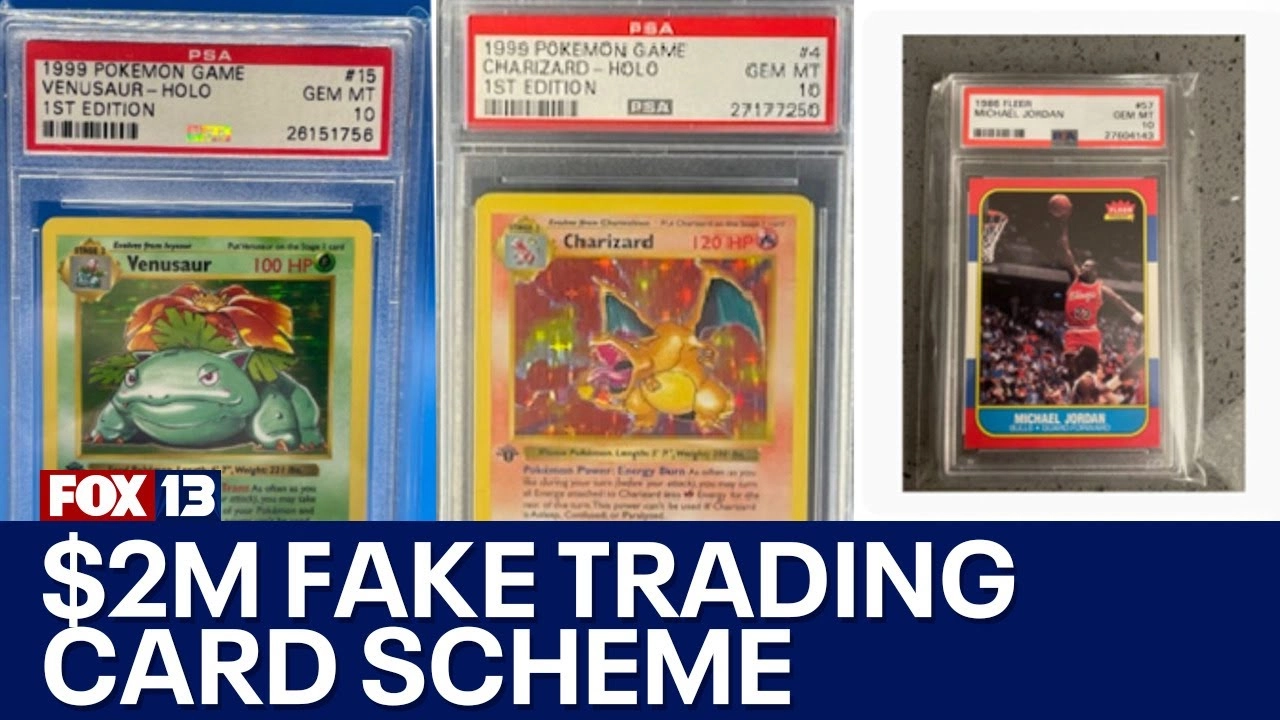
A few years ago, Anthony Curio's life story appeared to be one of redemption and positive transformation. Having served a six-year sentence for his role in a notorious car heist, Curcio seemed to have turned over a new leaf. He went on to become a speaker at educational institutions, promoting the importance of avoiding drugs and making good decisions. His message was one of hope and the possibility of change, resonating with many who heard him speak.
However, recent events suggest that Curcio's past tendencies might not be entirely behind him. Along with an accomplice named Iosif Bondarchuk, Curcio has been arrested and accused of engineering a sophisticated fraud involving rare Pokémon and sports trading cards. The duo is alleged to have scammed buyers out of approximately $2 million.
The crux of the scam involved the faking of PSA (Professional Sports Authenticator) gradings. PSA grading is a critical factor in determining the value of collectible cards. A higher grade can significantly increase a card's market price. For instance, a card graded as PSA 10 (gem mint condition) is deemed to be in almost perfect condition, substantially enhancing its value compared to lower-graded versions.
Curcio and Bondarchuk reportedly manipulated this system by selling cards they claimed were graded highly by PSA when, in reality, such grades had never been officially awarded. This deception came to light spectacularly during the sale of a 1986 Fleer Michael Jordan rookie card, which fetched $171,700 at a Manhattan auction. The card was billed as a PSA 10, but suspicions arose after it was revealed that PSA had no record of grading that specific card.
Further investigations uncovered more of the same deceit. In one notable instance in 2023, Bondarchuk sold a 1999 first-edition Venusaur Pokémon card to an undercover officer for $10,500, again falsely claiming it had been graded as PSA 10. The ongoing scam, which prevailed for around two years, finally began to unravel, leading to their arrest.
This situation has shocked many in the collectibles community, particularly those who had come to respect Curcio for his apparent turnaround and his advocacy against wrongdoing. The case is a poignant reminder of the trust buyers place in sellers and the authenticity of grading systems, and how both can be exploited for fraudulent gains.
The possible consequences for Curcio and Bondarchuk are severe, with potential charges carrying lengthy prison sentences. This case is particularly disheartening given Curcio's previous public stance on making positive choices and moving away from a life of crime.
The collectibles market, particularly for items as popular as Pokémon and sports cards, relies heavily on trust and verifiable authenticity. This incident has likely prompted both collectors and dealers to be more vigilant and cautious in their transactions. It serves as a critical lesson on the importance of verifying the authenticity of high-value collectibles through reputable sources.
Below is a relevant video discussing similar activities involving collectibles and their impact on the market: